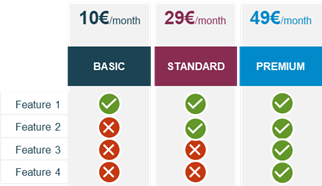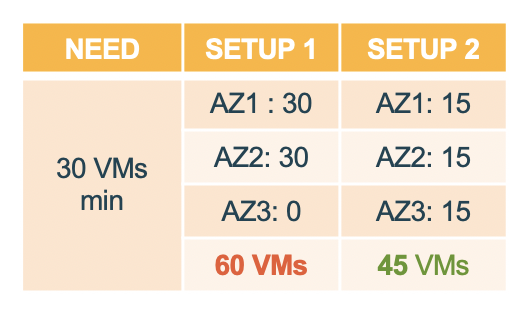Management of templates and architecture best practices
Key role(s)
Objectives
Benefits
A recognized best practice in the Cloud world is to define templates and architecture best practices to prevent development teams from reinventing the wheel and repeating the same mistakes. It also helps to secure provisioning by establishing configurations that meet the security and compliance requirements of the company.
Here are some aspects to think about:
Service levels
The definition of different levels of services where possible in order to offer the business greater flexibility but also more adherence between need and cost.
Let's take the example of a 3-tier product with more or less features covered for a different price. Let's not pay the "premium" price when the "basic" offer is enough!

Resiliency strategy
The definition of resilience strategies that are adapted to the requirements of the applications but at the same time optimized.
Let's take the example of an application that needs a minimum of 30 VMs running continuously.

Setup 1 spread over 2 availability zones and setup 2 spread over 3 zones cover the same need in terms of resilience, but setup 2 runs 45 VMs permanently instead of 60, i.e. 25% less!
Deployment options
The definition of templates limiting deployment options to provide both more agility and more control.
We can take the example of pre-configured frontend, pre-secured backup or even pre-filled instances (tags, security groups, routing tables, etc...).
PaaS First
The idea here is to offer services that make maximum use of PaaS services such as managed databases, lambda functions, containerization services, etc..
As you will have understood, rather than optimizing a posteriori, it is even better to optimize your services catalog!